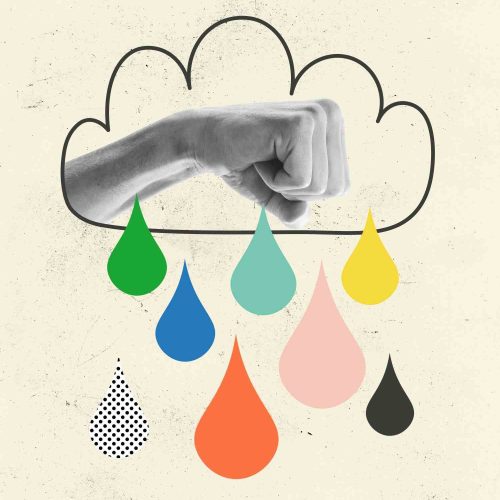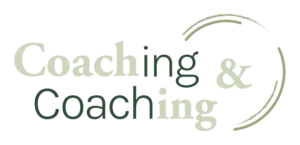In the Lotto of fashionable concepts, 'comfort zone' and 'VUCA' are very popular. You probably think you know what they mean...
Among the questions most asked on Google about the first are "why you need to get out of your comfort zone" or "is it wrong to stay in your comfort zone". The guilt is lurking... Among the questions most asked about the second are "how to stabilise the VUCA world" or "what's the best way to manage VUCA". This time, it's more like the shadow of Superman lurking!
And what does 'BANI' have to offer?
I don't propose to go into detail about each of these concepts, which revolve around the complexity and uncertainty of our environment, as many articles do this very well. Instead, I propose to take a dispassionate look at these 3 concepts, to put them into perspective and to see how they can be used today in the world of work, which is becoming very useful in the context of a Coaching for companies.
Contents

VUCA, BANI: what are they and what use do they serve today?
In brief, the main characteristics of a VUCA environment and a BANI environment are as follows
Let's start by setting a few milestones: VUCA was designed to describe a post-Cold War world, the world of the 90s, which is no longer binary; BANI, on the other hand, appeared as a VUCA 2.0, at the turn of the 2020s.
Developed by the US Army War College, VUCA stands for Volatile, Uncertain, Complex, Ambiguous.
Conceived by the American anthropologist Jamais Cascio, BANI stands for Fragile, Anxious, Non-Linear, Incomprehensible.
What VUCA and BANI have in common
The aim of these two acronyms is to highlight the unpredictability and complexity faced by individuals, companiesThey have emerged to distance themselves from 'the world before', which was Simple, Predictable, Orderly, Deterministic (SPOD). They have emerged to distance themselves from "the world before", which was Simple, Predictable, Orderly, Deterministic (SPOD - yes, it's got an acronym too!).
With VUCA and BANI, you need to be on your guard at all times to navigating by sight, in the dark generated by a financial crisis, Brexit, a military invasion, a pandemic.... In this general uncertainty, it is impossible to anticipate the probability of an outcome, because we have few or no similar past situations to compare them with. We can only guess at what might happen, because we don't have the experience to assess the most likely outcome. This calls into question our illusions of strength, control, anticipation and knowledge, which have been multiplied ad infinitum by Google and Wikipedia.
Uncertainty arises from our difficulty in comparing the present and its rapid evolution with what we have known until now. That's why VUCA and BANI both suggest that we need to nurture our capacity to adapt, collaborate and plan ahead.
Here are a few concrete cases of multinationals seen through the VUCA and BANI prisms:
- Netflix, which has moved from DVD rental to streaming in order to survive in a fragile, non-linear market.
- Adobe, which changed its business model from selling software to a subscription model based on cloud computing as the digital landscape evolved, at the cost of a continuous learning effort.
- Amazon, whose model is based on the intensive use of algorithms to understand the behaviour of each consumer and counter uncertainty with data.
- Uber, whose arrival on the taxi market has created uncertainty for regulators and undermined traditional models.
And after VUCA and BANI?
One of the emerging trends has recently been the term 'polycrisis', taken from the Global Risks 2023 report published by the World Economic Forum. It states: "Current and future risks may also interact with each other to form a polycrisis - a set of linked global risks whose effects add up in such a way that the overall impact is greater than the sum of the parts".
We can imagine that this concept will soon have a new acronym!
What does this have to do with the comfort zone? And why do we need to get out of it?
What is a comfort zone?
In this complex VUCA - BANI environment, we are fortunately organised to cope with a certain level of uncertainty. For example, familiar landmarks that we rely on every day. These are what feed our comfort zone. This comfort zone is a psychological state in which we feel comfortable and safe, because we have a sense of control, stability and security.
At least, that's how it's referred to in today's management literature.
Let's go back to the beginning of the 20th century, when animal ethologists Robert M. Yerkes and John D. Dodson came up with the idea in 1908 - yes, they're Americans too! As you will have gathered from their work, the comfort zone was initially designed to describe animal behaviour.
Much later, in the 50s, the postulate was transposed to humans that "optimal performance" would be achieved when a person stepped out of their comfort zone. This had a direct impact on management: managers and leaders needed to generate a certain level of tension and discomfort in their teams so that they would "get out of their comfort zone" and reach a zone of excellence, creativity... and therefore optimal performance.
Nowadays, it's commonplace to hear that you should avoid falling into your comfort zone at work, because it's seen as a place of mediocrity, lethargy and procrastination. Hence the most frequent queries on Google, such as "how to overcome your fears and get out of your comfort zone".
These requests should be set against those concerning the inherent complexity of our environment, as I mentioned in my introduction: "how to stabilise the VUCA world", etc. It's enough to make you schizophrenic...
All the more so in times of uncertainty in a complex environment, when using experience has its limits. Experience is another way of thinking about the comfort zone. Many managers and executives tell themselves that a good decision is based on their acquired experience, which forms the basis of their comfort zone. And in many uncertain situations, managers and executives turn to historical analogy to prepare for the future and formulate strategic plans. Already, during their studies, universities and business schools have shown them case studies representing different economic models, to help them develop their appreciation of a situation and sharpen their judgement. But past experience has its limits, as shown by the Covid pandemic and the climate crisis.

What new skills are needed?
Let's pick up the thread of the comfort zone and the injunction to get out of it. Can we really say that people are naturally tempted to stay in their comfort zone?
Businesses are constantly evolving and undergoing many changes, all of which require the development of new skills. Micro-florile :
- Technological transformations, such as digitisation
- Faster work rates
- Teleworking
In this context, it's hard to imagine anyone resting on the laurels of their comfort zone without adapting their professional practices! Because in reality, our comfort zone is the result of a number of previous learning experiences, and develops as part of a continuum of adaptation. So the injunction to get out of your comfort zone - and to stay out - has nothing to do with reality.
Rather, at an organisational level, in order to survive and develop over the long term, companies need both to exploit the existing skills of their teams and to help them explore new ones. To have effective leadership, companies therefore need to be "ambidextrous". And to reconcile these two imperatives of the present and the future, which require different resources and ways of thinking, and even different organisational modes.
What about resistance to change in this VUCA - BANI environment?
Yes, it exists. But it is often less the result of a personality trait than of the players negotiating room for manoeuvre and autonomy in their work.
It's true that we don't grow if we don't explore beyond our limits. But living in a constant state of tension and uncertainty is no way to regain your equilibrium, and turns the company into a battlefield. Back to the Cold War!
The important thing about the idea of the comfort zone is to see it as an elastic space that can change shape and size. Like a shelter from which we venture out. To recognise when it's possible to stay there by making the most of our expertise and know-how, and when it's necessary to evolve to identify our next step, or even push back our limits by developing our capacity to adapt.
Because when you feel at ease, you can concentrate, gather your ideas and clarify your decision-making process so that you can move forward from one stage to the next, opening up to new functions, new teams or new ways of working.
A few coaching questions to take you further
What strategy should you adopt in a VUCA - BANI environment?
Working in a VUCA - BANI world means working in the knowledge that our needs and the assumptions on which they are based can change rapidly and unpredictably. That's why preparing for the future requires constant reassessment, and not just of the economic environment.
Working in a VUCA - BANI world also requires a working environment that fosters a climate of openness, exploration and a learning culture that encourages controlled risk-taking to test hypotheses, explore possibilities and find solutions to bottlenecks.
Just as a gardener or farmer cannot pull on a plant to make it grow faster, managers and executives cannot force change in an uncertain environment. Instead, they need to focus on improving the quality of relationships within teams, so that collective behaviour facilitates concrete results.
Here are a few questions to help you think and act proactively:
Coaching issues relating to teamwork and team relations
- To what extent are your project team, your management team or your board of directors weakened by uncertainty?
- For each type of collective, what degree of 'solidity' is needed to withstand the pressure of volatility and uncertainty?
Coaching questions related to your role
- And what can you do to help clarify the objectives and commitment of the type of team to which you belong, so that your company can better withstand the pressure?
- Who are the people you can call on and what resources do you need?
- How can you help to limit the extent of volatile noise so as to capture the most important signals?
- Based on these signals and the corporate culture, what contextual elements can you share with your teams to limit the impression of complexity and non-linearity? What information is available, but also what is not yet known, and what is your opinion of it?
- And how can you contribute to developing a professional environment conducive to trial and error, to develop everyone's comfort zone and better adapt collectively in the long term?
In conclusion, uncertainty goes hand in hand with novelty, which, by definition, offers few antecedents. As the present looks less and less like the past in a VUCA - BANI environment, let's remember the pioneering approach of Forrest Gump and his mother, who as early as 1994 said that "Life is like a box of chocolates, you never know what you're going to get! And her insoluble question: does the box of chocolates represent the VUCA - BANI world or our comfort zone?



